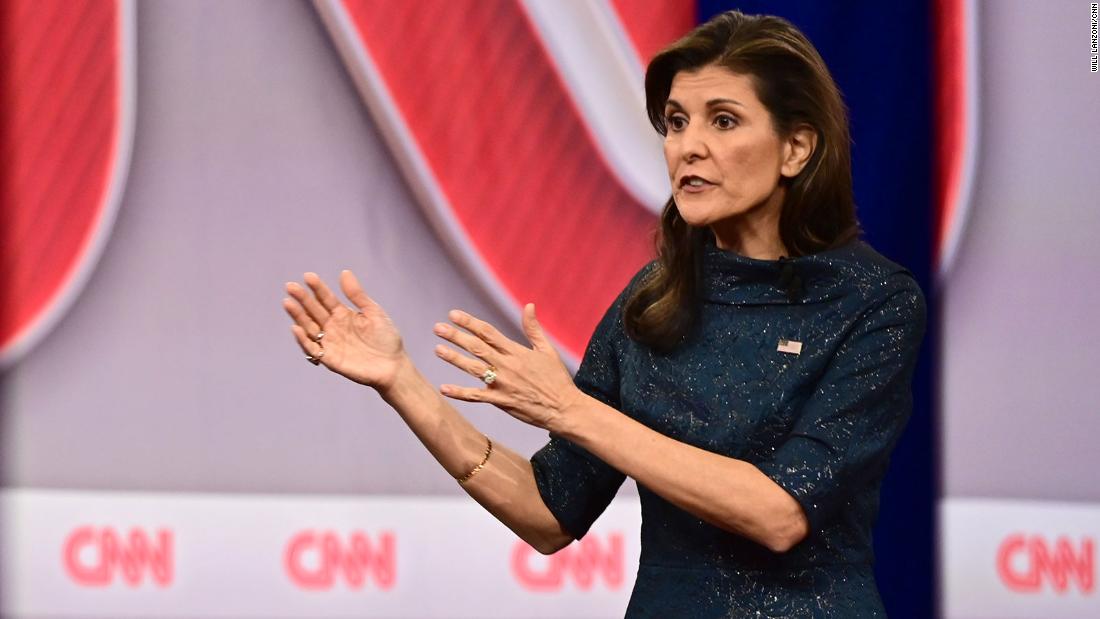Haley’s comment ignites talk about race
Nikki Haley’s clumsy fumbling of questions about American racism — call it Haley’s comment — leads me to wonder how many of us truly understand what is perhaps the most divisive factor among Americans. It eclipses class, politics, gender, religion, geography, even IQ.

Do I believe America is a racist country?
Let me answer with a related question:
Is America an anti-Semitic country?
You mean, now?
Do you get the point?
I am not saying anti-Semitism and racism are the same, they are not proportionate, but they share similar roots — fear, hate, misunderstanding.
Race is not mono-thematic. It is more like a half-filled glass. It can be perceived with optimism, or pessimism.
Asked if America is a racist nation, Haley said no, that our stated ideals were equality and the pursuit of happiness. She said “all men are created equal,” quoting the Declaration of Independence. That is the glass half-full answer.
The half-empty version is that “all men” excluded women, and the U.S. Constitution decreed that Black slaves were to be counted as 3/5ths of a person. Which means less than human.
That was in addition to not prohibiting the evil of slavery.
Yes, there were reasons for that moral failure, but facts are facts.
Haley seems to be unable to reconcile the difference between our high-minded stated ideals, and the grim actuality of our practice.
So, yes, it can be true that the opposites — slavery and equality — are both counted as America’s pillars.That is part of our founding contradiction.
Not all of America approved of slavery, but it took 84 years for those opposed to defeat those in favor.
It defies logic to deny that America was a racist nation. Haley knows that, but she also knows that most Republicans don’t want to hear it.
They want to hear something about Abraham Lincoln and think that wins the argument.
It does not.
As some Democrats make a fetish of slavery, they like to forget that theirs was the party of racists for about 130 years.
Not a single Republican voted against the Civil Rights Act of 1960, while 18 Democrats voted nay. Earlier, in 1948, the Dixiecrats walked out of the Democratic National Convention to form the States Rights Party.
Enough with the history.
Back to the point: Is America a racist country today?
And again: Is America an anti-Semitic country today?
No. America is a country that is home to anti-Semites, but it is not anti-Semitic.
I can prove it.
When there is a terrible anti-Semitic act, such as the 2018 mass murder at a Pittsburgh synagogue, some Jews make reference to Nazi Germany, as if America were a Nazi country.
No. In Nazi Germany, it was the government that was killing the Jews. In America, the government arrests and prosecutes those who attack Jews.
Jews here — like everyone else — are protected by the law, however imperfect.
Those same general laws protect African-Americans, plus an added layer of laws that enshrine equal opportunity in jobs, housing, voting, and so on.
Since laws provide the structural system of society, it is inaccurate to talk about “systemic racism” in America. It would be just as wrong as to believe in “systemic anti-Semitism.”
Do racism and anti-Semitism exist?
Yes.
Are they admired qualities by the vast majority of Americans?
No.
If I were to design a Grievance Meter, that’s one place where Blacks would be #1. (Although Native Americans might argue that point.)
Throughout U.S. history, various groups have been victimized, or outright excluded, such as the Chinese. Each wave of immigration brought out Nativist hate against the Irish, the Italians, the Jews, the Muslims.
We can’t deny our past. And slavery was the worst of the worst.
But to judge today as if it were 1850, or even 1950, when segregation was legal in many states, would be a travesty. It’s hard to believe in systemic racism in a country that has nine Black billionaires, where it’s hard to find a major city that hasn’t had a Black mayor, where vast areas of entertainment and athletics are dominated by African-Americans.
And when we acknowledge our racist past, that in some way obligates us to correct, or at least diminish, the gaps between white and Black education and wealth in America. Doesn’t it?
That leads us to the subject of reparations, but that is a topic that requires its own space.



